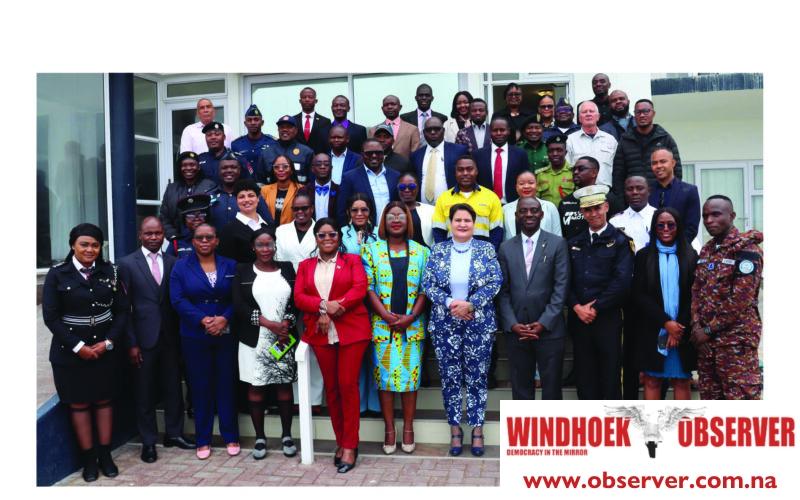Justicia Shipena
The Organisation for the Prohibition of Chemical Weapons (OPCW) has started a week-long training course in Swakopmund to strengthen Africa’s ability to respond to chemical incidents. The course, which opened on Monday, brings together participants from English-speaking States Parties across the continent.
Deputy minister of industries, mines and energy, Gaudentia Kröhne, said the destruction of all declared chemical weapons stockpiles in 2023 was a landmark achievement.
“This historic achievement underscores the commitment of the international community to disarmament and reminds us of what can be accomplished through cooperation,” she said.
Kröhne stressed that while the elimination of stockpiles was a major victory, continued vigilance and preparedness remain essential.
She told participants that the programme was designed to share technical expertise and prepare them to respond effectively in their roles.
“It is about strengthening cooperation between our institutions, building trust across our borders, and ensuring that when it matters most, we can act in unity to protect our communities and contribute to a safer world,” she said.
She also highlighted Africa’s growing role in promoting global peace and security, saying the continent was “writing a story of resilience and cooperation.”
Namibia previously hosted the same training in Swakopmund in 2022 and in Windhoek in 2024.
OPCW programme officer Babatunde Olowookere praised Namibia’s partnership with the organisation.
“Namibia is a long-standing and committed partner of the OPCW, and we are truly grateful for its continued support in hosting this course,” he said.
Olowookere recalled that in July 2023 the last declared chemical weapons stockpiles were destroyed in the United States, calling it a historic moment for disarmament.
With that milestone achieved, he said the focus has shifted to preventing the re-emergence of chemical weapons and strengthening cooperation.
“The specific needs of the region and the challenges it faces in implementing the CWC require a targeted approach,” he said.
He encouraged participants to exchange experiences and best practices during and after the course.
The training is part of the OPCW’s 2024–2025 regional cycle under its Assistance and Protection Programme and is in its fourth phase.
Over five days, participants will receive practical training in personnel protection, detection and sampling, decontamination, operational readiness, and zone management during chemical emergencies.




